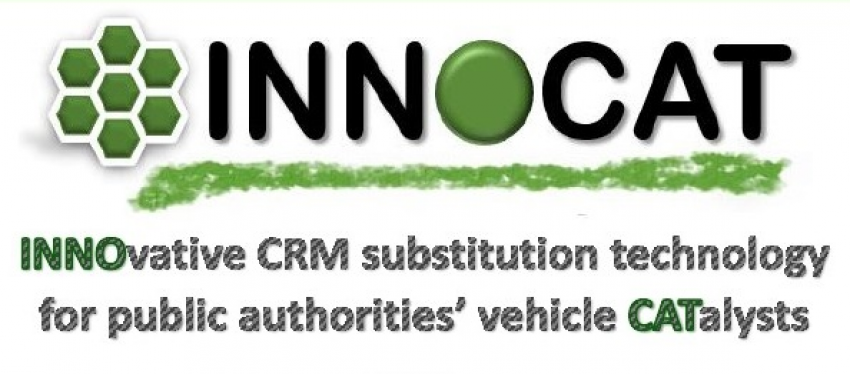EIT's project INNOCAT progresses at a good pace towards a replacement for PGMs in vehicles' catalysts
Our day by day / 15-05-2020
INNOCAT project celebrated this month its third partners’ meeting and we are happy to see that everything is going well despite the hard situation caused by the coronavirus crisis. The consortium met online last May 11 and shared their advances in the retrofitting of aged heavy-duty vehicles owned and operated by territorial public authorities in the 8 countries of the partnership.
These vehicles have been manufactured before the introduction of the Euro V and VI standards and account for a significant part of air pollution in EU cities. A cost-effective solution to the problem is to retrofit these aged HDVs using a new catalytic converter technology that substitutes 60% of PGMs with copper nanoparticles Therefore, the project aims to demonstrate both economic and environmental gains.
INNOCAT, which belongs to the EIT Regional Innovation Scheme (EIT RIS), brings together partners from 8 RIS countries to work in the replacement and reuse of critical platinum-group metals (PGMs), used in vehicles' catalysts. Under the title 'Innovative CRM substitution technology for public authorities' vehicle catalysts', INNOCAT aims to diffuse innovative technologies for the replacement and recycling of platinum group metals (PGMs) in their application as catalysts for the automotive industry.
Expected results of this project includes:
- A feasibility study analysing the requirements for the emergence of territorial ecosystems for the substitution of PGMs in vehicle catalysts, as well as the associated regulatory framework in each participating country.
- Pilot application of the INNOCAT technology that will evidence the amount of PGMs recovered from the catalysts of heavy-duty vehicles and forecast the potential gains for territorial value chains through the INNOCAT approach.
- Thematic workshops on PGMs substitution in vehicle catalysts and matchmaking events to share experience and form clusters in participating Regional Innovation Scheme countries.
- Development of policy and smart specialization recommendations for territorial authorities, to better address the importance of PGMs for the economy.
- Creation of educational resources on PGM substitution in vehicle catalysts.
- Design of a funding scheme to stimulate the emergence of start ups and support the proliferation of business activities in the field of PGMs recycling and substitution.
The benefits of this approach will be effectively demonstrated within the 8 participating countries (Greece, Spain, Poland, Czech Republic, Bulgaria, Slovakia, Hungary and Slovenia) by adapting their fleets of heavy-duty vehicles owned or operated by regional public authorities, which will result in both economic and environmental benefits. The project seeks active contribution of public authorities, policy makers, private companies (from automotive but also from waste management and secondary raw materials), as well as academic, training, and R&D organizations.
The role of ICAMCyL within this project is, on one hand, the collection of data on PGMs and fleets of heavy-duty vehicles within the region and, on the other hand, the selection of a specific vehicle for retrofitting as a pilot experience within the project. In addition, we actively participate in dissemination and communication activities through the organization of workshops and matchmaking events to facilitate the adoption of these new technologies both in the public and private sectors.
This project belongs to ICAMCyL’s strategy to promote novel technologies that reinforce resource efficiency and the objectives of the Circular Economy, including the recovery of secondary raw materials which can have a second (and third, fourth ...) life through innovative recovery and recycling processes.
European project INNOCAT is funded by the EIT Regional Innovation Scheme (EIT RIS), a body of the European Union. Project number: 18344. FAST-TRACK Call for KAVA 5 projects. RIS segment.
Download the project's poster:


